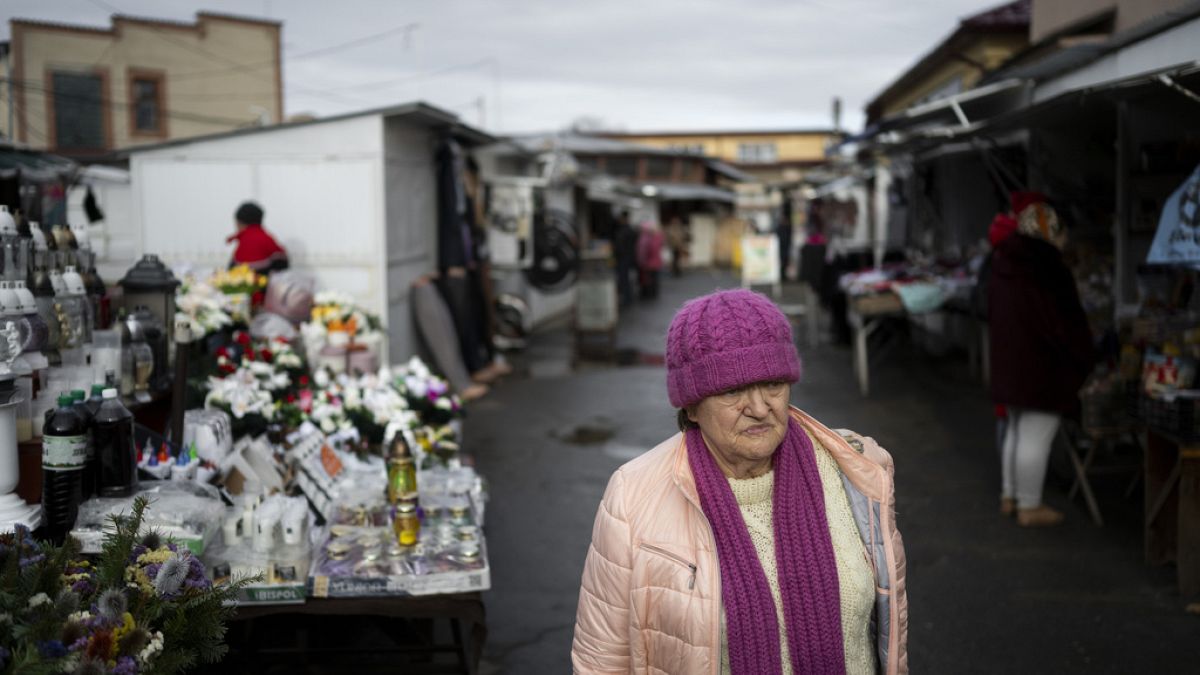Viktor Orbán remains lukewarm about improved legal protections for Hungarians in Ukraine, and is still citing the issue as a pretext for holding up military aid.
Under the watchful eye of their teacher, a group of students in western Ukraine used a scalpel and forceps to dissect a pig's heart during a weekend biology class.
The lesson was taking place in Hungarian, and the students, members of a sizeable ethnic Hungarian minority, have become a bone of contention in relations between Hungary and Ukraine – one that threatens to thwart key financial support for Kyiv as it fights to defeat Russia’s invasion.
Hungarian Prime Minister Viktor Orbán has long alleged that Ukraine's government is infringing upon the rights of those students, and of the roughly 75,000 ethnic Hungarians residing in the Ukrainian region of Zakarpattia, to speak their native language in education and public administration.
His government has blocked crucial European Union funding for Ukraine and threatened to impede the war-ravaged country's efforts toward eventually joining the bloc, bringing diplomatic ties to new lows.
The dispute over language is rooted in Ukraine's efforts to bolster its national identity after Russia-backed rebels took control of two regions in the country's east in 2014 and Moscow annexed Ukraine's Crimean Peninsula.
Aimed at combating Russian influence, but ultimately affecting other minority languages, a law was passed in 2017 that made Ukrainian the required language of study past the fifth grade, angering Romanian, Bulgarian and Hungarian minorities.
In December, though, Ukraine amended its education and language laws to comply with the EU's membership requirements, and restored many of the language rights demanded by Budapest – prompting a sigh of relief from the region's Hungarian community.
The legislative changes “essentially gave the Hungarian community of Zakarpattia the opportunity to ensure its own existence for another 30 years,” said László Zubánics, head of the Hungarian Democratic Alliance of Ukraine, a Hungarian interest group.
Yet Hungary's government has indicated it is not fully satisfied with the changes – a potentially crucial sticking point as EU leaders meet on Thursday to try to break Orbán's veto of a €50 billion aid package earmarked for Kyiv.
“The law adopted at the end of last year in Ukraine undoubtedly deserves respect. It stopped a negative spiral," said Hungarian Foreign Minister Péter Szijjártó on Monday, following a bilateral meeting with his Ukrainian counterpart in western Ukraine.
He added, "We don't see at all that the issue of national minorities has reached resolution... We still have a long way to go.”
Since Russia's invasion, Orbán, widely considered to be Russian President Vladimir Putin’s closest EU ally, has emerged as a consistent opponent of military and financial aid to Kyiv and sanctions against Moscow, often using the Hungarian minority to justify his lukewarm support for Ukraine.
Hungarians in Zakarpattia are largely supportive of Orbán, but also back Kyiv’s ambitions to join the EU. Yet Orbán has expressed skepticism, commenting in November that EU admission was “light years away” and signalling that full language rights for Ukraine's Hungarians are a prerequisite for his support.
Zubánics, who endorsed an open letter to Orbán in December urging him to lift his opposition to Ukraine’s EU path, said he is optimistic, despite the tension between Budapest and Kyiv.
“In our mentality and culture, we consider ourselves European citizens,” he said. “We are aware that this will not happen immediately, as it will be a long, sometimes instructive and sometimes painful process for everyone.”
Hungary has provided generous financial support for the minority in Ukraine, seeking to bolster its Hungarian identity and connection to Budapest. It has simplified the procedure for acquiring Hungarian citizenship – something Ukraine, which does not recognise dual citizenship, has opposed.
The meeting on Monday between Szijjártó and Ukrainian Foreign Minister Dmytro Kuleba – their first since the war began in February 2022 – as well as plans for Orbán to meet with Ukrainian President Volodymyr Zelenskyy, suggest a partial thaw.
But for now, Hungary's government has remained firm that despite improving conditions for the Hungarians of Zakarpattia, it is not yet ready to fully support Ukraine. That, Zubánics said, will require greater efforts from both sides.
“Diplomacy is partly high art, but at times it is more like theatre than real life,” he said. “But regardless of this, we have to move along with specifics now, and I think there is much more in common between the parties than what separates them, but this also requires political will.”
